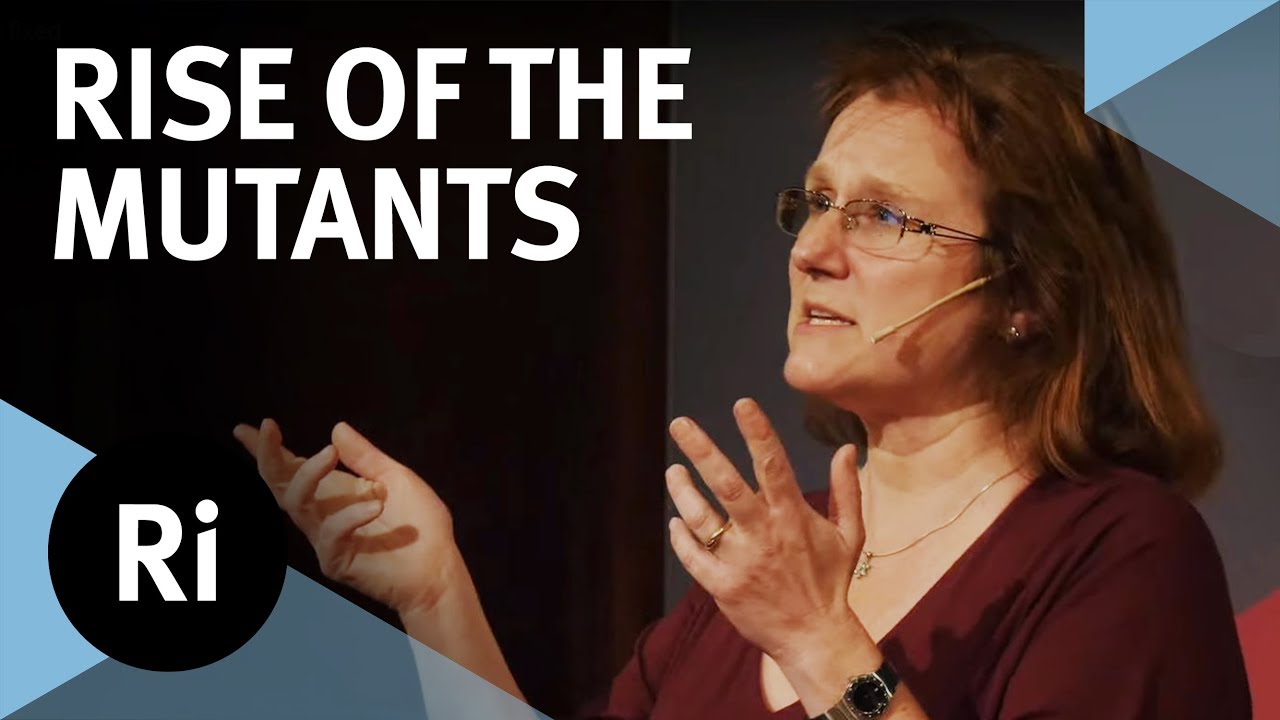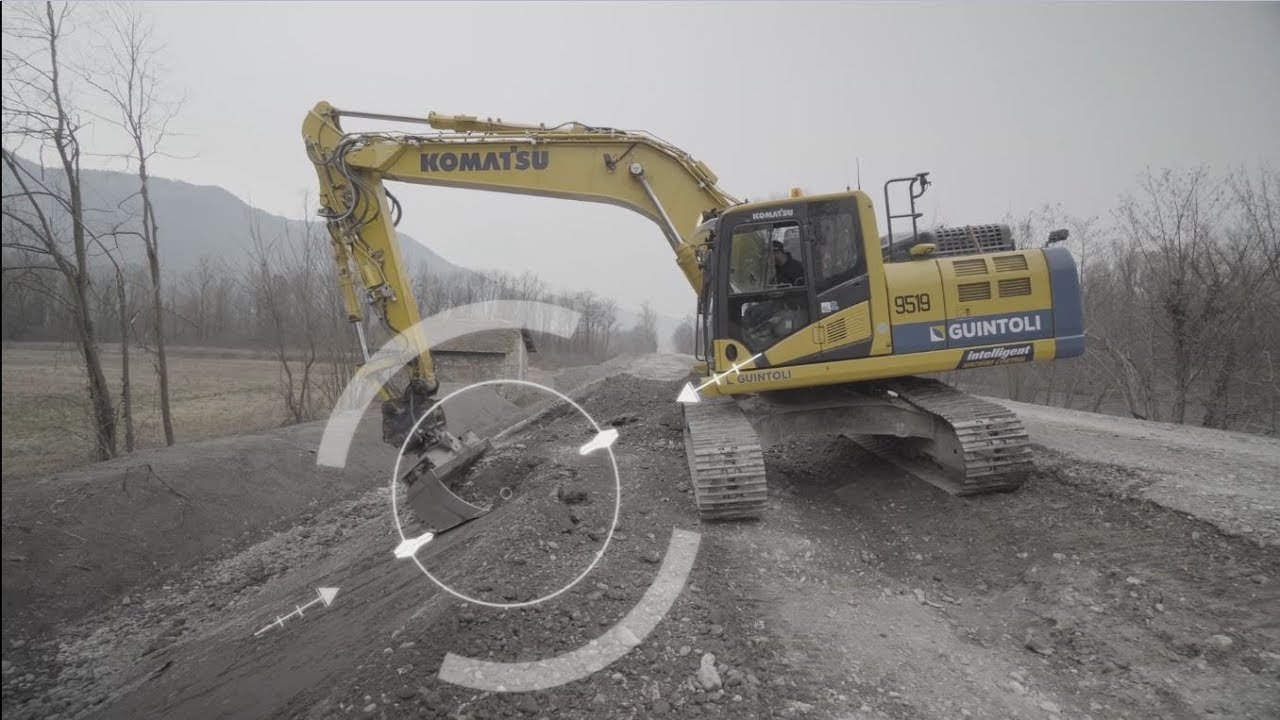The Royal Institution
Mutation is one of the prime drivers of genetic diversity.
Subscribe for regular science videos: http://bit.ly/RiSubscRibe
Alison Woollard is a University Lecturer in Genetics in the Biochemistry Department at the University of Oxford working on the developmental genetics of the nematode worm Caenorhabditis elegans. Alison gave the 2013 CHRISTMAS LECTURES, ‘Life Fantastic’.
This talk was filmed at the Ri on 15 October 2018.
—
A very special thank you to our Patreon supporters who help make these videos happen, especially:
Darren Jones, Dave Ostler, David Lindo, Elizabeth Greasley, Greg Nagel, Ivan Korolev, Lester Su, Osian Gwyn Williams, Radu Tizu, Rebecca Pan, Robert Hillier, Roger Baker, Sergei Solovev and Will Knott.
—
The Ri is on Patreon: https://www.patreon.com/TheRoyalInstitution
and Twitter: http://twitter.com/ri_science
and Facebook: http://www.facebook.com/royalinstitution
and Tumblr: http://ri-science.tumblr.com/
Our editorial policy: http://www.rigb.org/home/editorial-policy
Subscribe for the latest science videos: http://bit.ly/RiNewsletter
Source




Truth
Did this woman just call me a mutant ? That’s very offensive ma’am
Everything in nature makes sense except in the light disillusion 😉
what a great lecture 👏👏👏👏
I hate nematodes! They're not my favourite organism. They're parasites and generally evil, and their far relatives are insects and other evil nasty creatures that sting, bite and suck blood. I prefer humans, cats and dogs in that order.
Secondly: very few mutations are viable, and they are only if they can coexist with the rest of the genetical apparatus. Perhaps, when the connection between genetics and biochemistry (such as protein synthesis, and all the biochemical pathways) is better known, we can predict what mutations will propagate to the next generations.
Remember that IQ, race, and political intuitions are social constructs and not at all genetic.
19:57 Animal species on Earth today actually only represents less than 1% of species that have existed, that's amazing isn't it? No, that's not "amazing," it is horrendous. I'm "created" (evolved) to want to survive, and I want the rest of my species to survive too, the idiots uncounted, because they only cause problems for that survival. I feel pity and sorrow for the lost species, even though it is considered "irrational." I feel anger when considering that humans made Stellers sea cows, and the thylacines go extinct. Biology often serves perspectives of truths served with grotesque feelings.
The audio quality is unwatchable. Even on my crappy pc speakers, let alone my tv.
The only mutants are the GMO plant, animals and humans.
Yes random single nucleotide mutation is one driver for genetic diversity but in a population with almost zero selection it causes more trouble than good. We have to own the fact that the good life we live it's what is causing so much cancer and rare diseases. It's no longer a hypothesis there is research backing this up.
good lecture but nothing new, everything she said was said before by other people on this very channel, i was hoping for new information on nana and lulu, the crispr/cas9 babies from china
and here we have the creationist, explain how noah got penguins to and from the antarctican continent and all of the variation in dogs? and kangaroos arnt in america and the vast, vast amounts of geological and genetic evidence FOR evolution?
Haha, same idea, different argumentation and consequences: https://medium.com/the-gentle-revolution/the-mutants-are-under-us-9c3ee64dd8a7
what is the time-frame of the video of the embryos? it must be on fast forward, but how much?
There is a new tool called crispr cas 3, which is more precise.
https://www.biotechniques.com/crispr/crispr-upgraded-from-scissors-to-shredder/
Realistically we will need to cross that line In principle if done responsively "designer babies" are not necessarily a bad thing rather something that needs be done responsibly, to drive humanity forward irrespective of class race gender etc. This will be necessary since the changes needed to drive a species that can reach and survive among the stars and settle the galaxy will be well beyond trillions of years of pure biological selection which works off random mutation.
What is most important is achieving a proper understanding to improve upon what nature has developed rather than blindly tweaking minor tweaks without knowing consequences.
Ultimately what seems most promising is the potential to try and mitigate the flaws that could well lead to our downfall as a species since our genomes are so out of sync with what we are technologically capable of. Evolution has wired us for short term biased thinking and reward systems when our potential for destruction acts planet wide on timescales beyond most people's comprehension. Natural selection will require losers among humanity who fail to survive and reproduce a concept in inherit opposition to ethics, human rights, and healthcare's goal of doing no harm.
So if we wish to improve as a species while upholding these ideals we can only choose to take our progress under our control sooner rather than later.
Informed germ line modification is the least dystopian possibility for humanity which is something we will need to recognize before it is too late. Humans are already vastly overpopulated comparing to the resources we consume to the resources the planet can provide and our technology exceeds our ability to use it responsibly . While much of this could be solved with better policies and decision making that would not resolve the underlying root of the problem, our behavior which remains primed for that of a tribal nomadic hunter gather society.
In no place is this more obvious than in the human mindset of waste which functioned on the basis that tossing waste aside and moving on avoiding the problem all together would allow nature to take care of it something that has turned detrimental since we first invented agriculture.
and to think something so absolutely perfect yet people still deny the existence of GOD
Good presentation. I thought I had seen a study done on Galapagos finches that indicated that mutation wasn't just random but mutation as nee4ded in the case of the finches they were mutating quickly to accommodate changes in their environment. Does anyone know about this?
Mutation is neither good nor bad. It makes you more adaptive, or kills you if it is in a bad mood.
Nothing in nature makes sense without the firm belief in the existence of God, the creator of everything.
no evidence of evolution ever
22:00 interesting numbers
🌄 I can hold my breath for 9 hours and walked on the ocean floor from Santa Barbara too Catalina and didn't see anything, I think I'll fly back 🎶🏛✌🍻🎸🌟Satch Moe🎵⛥🤘🌈😎✨
Amazing
Thanks for such a unique and good lecture
5:35 "Daughter-cell" probably comes from a language that knows grammatical gender. E.g. in German "die Zelle" is (grammatical) feminine.
If humans suddenly went extinct, I shudder to think of the agonizing fate in store for species that have, over thousands of years, been bred and adapted only for our use, pleasure, food, companionship, and/or entertainment. Animals such as cows, sheep, and especially dogs would mostly perish very awful and painful deaths in a relatively short time once the humans they are dependent upon are gone. The fate of animals such as dogs is therefore inextricably linked to our own fate; if you love and want to be kind to dogs, in essence, you should and must be kind to their caregivers: humans! These four-legged animal friends shall all perish very quickly and rather terribly right after we vanish. One can therefore really only love dogs to the extent that she or he loves people. – j q t –
I thought there were only four Beatles.
They are called daughter cells because science is clearly biased towards women. We obviously need to burn all existing science book and replace them with the politically correct language.
Sorry just wanted to see how if it feels to be regressive; it would be hilarious if people didn't literally think like this.
This is a great lecture by the way, can we get more.
CRISPR had already been used to create designer babies when this talk occurred.
Could you please work on your audio quality? Mic-level is way too hot; clipping so much that it's almost ear hurting…
Good for kids but up to the middle its all old O level biology. Gene therapy was discussed rather late in the program but will be the biggest breakthrough in effectively treating and curing cancer in our history. Today we must worry about the dummies who are creationists who want to destroy all science and return us to a World run by the dogma and polemic rhetoric of religion and resurrect the medieval dark ages. Belief vs facts, I take facts and science to find them out, this has proven to do for mankind, even in medicine alone, than anything else.
Fantastic presentation, excellent speaker
Such a great talk, Alison explained it so well. She's like the Richard Feynman of biology, able to make complex topics simple but accurate.
I'd like to know an estimation of how mamy different people could be made from all DNA possibilities. 100 quadrillion or less?
Also is good info for a coder trying to get hired .
mutations aka transcription errors. Of course mutations are a critical part of evolution. While mutations are random though evolution is not. Environmental pressures will decide which mutations are beneficial and will persist long enough in order for them to be passed on. Lactase persistence is one rather recent evolutionary adaptation in humans. We are now able to speed up that process through directed genetic engineering which of course raises ethical concerns. AI is evolving as well by taking lessons of how nature operates (neuro-networks and machine learning).
We can't ignore the science. Proper regulation is needed of course but that takes continual discussion. If we can slow down aging, eradicate dreadful inherited diseases and so on than that is a great thing. But with most things in life, with opportunity also comes risk. We need to balance the two.
This lecture reminds me of biology class back in high school when I was a teenager back in the mid to late 90s
The lecture is very primitive for Ri. It make sense for a high school indeed.
I have mutated into a form which dislikes overlong videos.
greeting Raven, it's been a while
each human has 40 trillion cells, each cell's DNA can be stretched 2 meters long, all cells DNA can be stretched 80 trillion meters aka 80 billion km aka 548 times the distance between sun and earth aka 0.008 light year
I think we are all mutants. Even a tree is a mutant.
The term "playing God" has always annoyed me. One can point the scripture and argue, "we're made in his image". So, are we not supposed to? I think so.